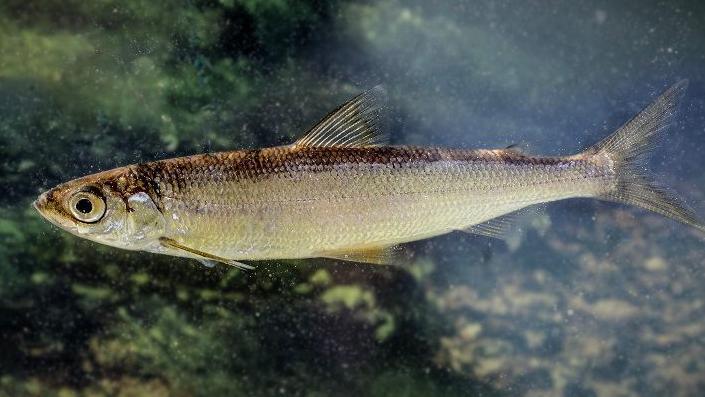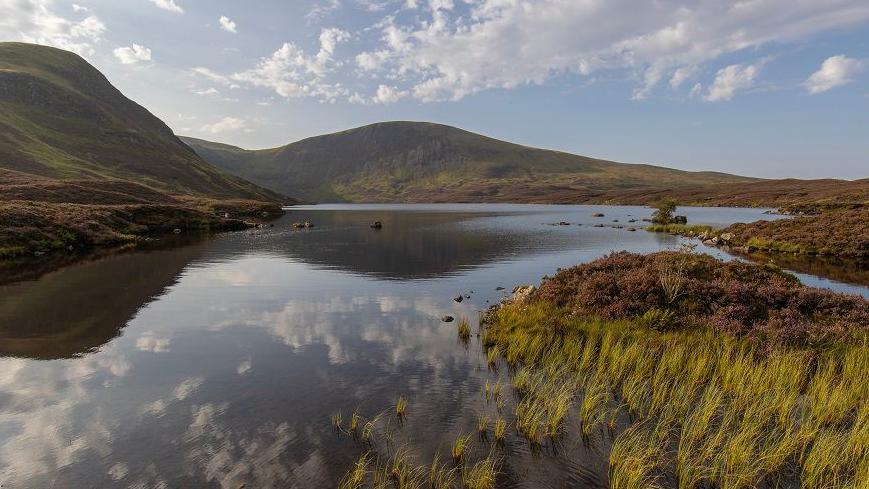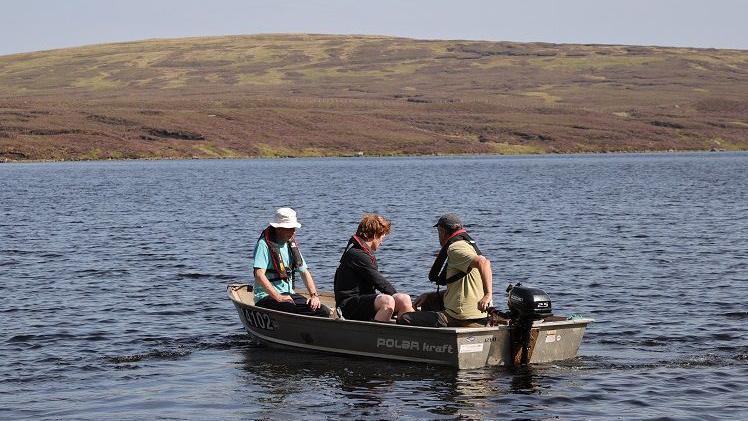Prehistoric fish thriving in Scottish loch

The vendace is Britain's rarest freshwater fish
- Published
A survey has revealed that Britain's rarest freshwater fish is continuing to flourish in Dumfries and Galloway.
Vendace had been extinct in Scotland until being reintroduced at Loch Skeen near Moffat almost three decades ago.
The site was identified as a suitable habitat for the species which requires deep, cold and well-oxygenated water to survive.
The National Trust for Scotland (NTS), which manages the loch, said survey work had confirmed that the vendace population was in good health.

Loch Skeen's waters are helping vendace thrive
The fish, which date back to the Ice Age, have only ever been found at four locations in the UK - two of which were at Lochmaben in Dumfriesshire.
The species disappeared from the Mill and Castle Loch sites last century and was then absent from Scotland until efforts began to revive it in the late 1990s.
Vendace were taken from remaining populations in England at Lake Bassenthwaite and Derwentwater and reintroduced to Loch Skeen.

Survey team members gathered data on the vendace numbers
The vendace survey was carried out by team from the NTS and the University of Glasgow using a small boat to set nets on the water.
They said the results showed the current vendace population was "highly abundant".
Loch Skeen is part of the Grey Mare's Tail nature reserve and its head ranger, Ciaran Hatsell, welcomed the findings.
He said: "Vendace is an incredibly rare and iconic species but faces many threats - the biggest one being climate change."
He added that warming temperatures remained a concern but for the moment the waters of Loch Skeen offered the perfect environment for the fish.
- Published23 October 2013